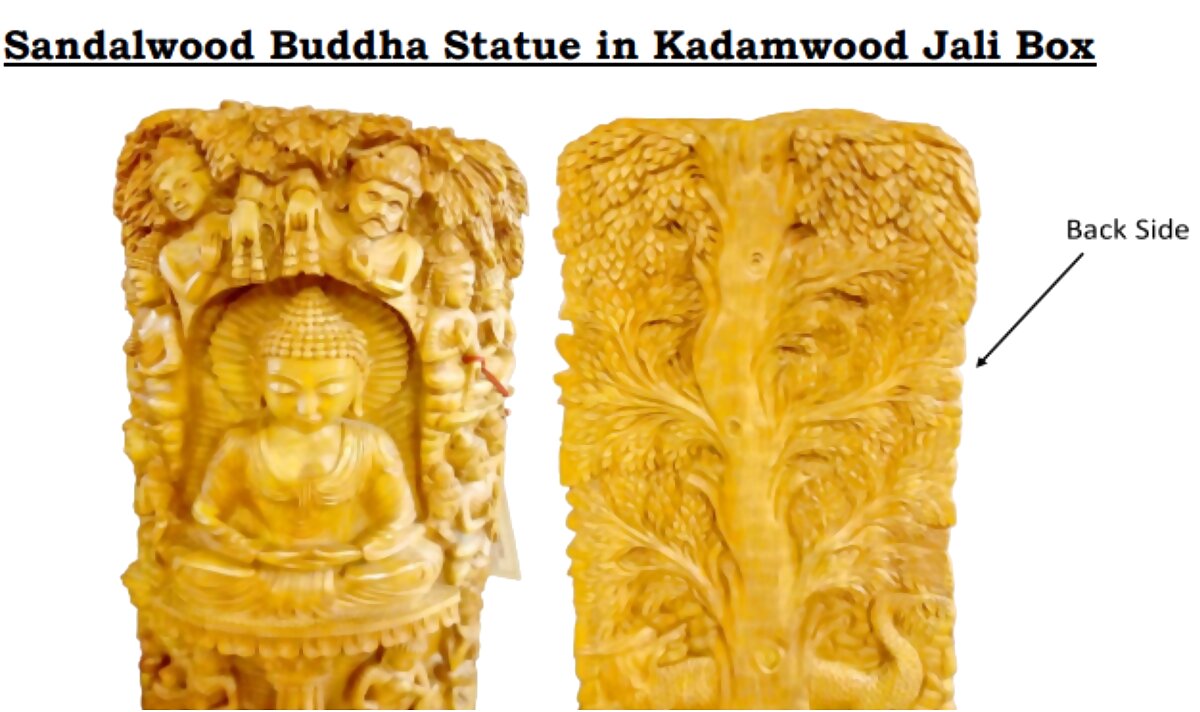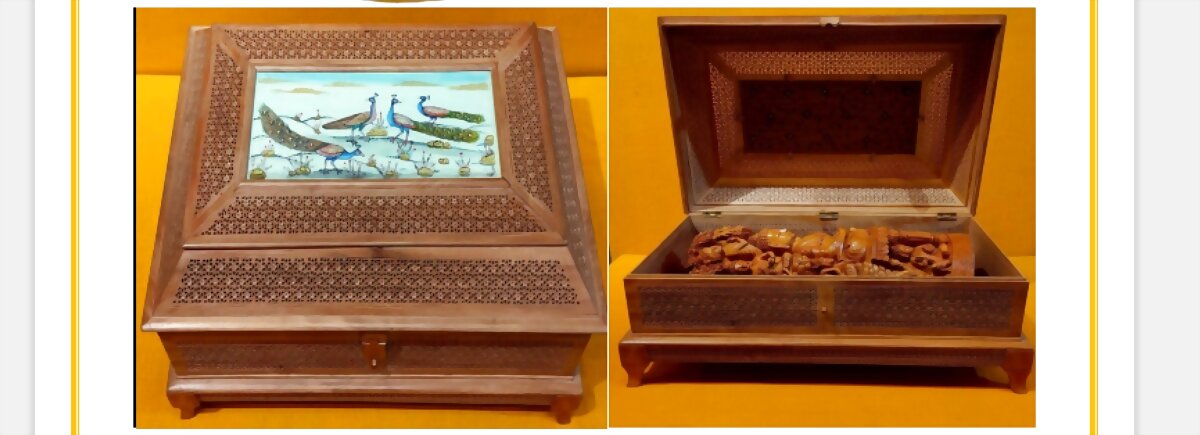
views
Prime Minister Narendra Modi on Monday gifted a sandalwood Buddha statue encased in a ‘kadamwood jali box’ to his Japanese counterpart Fumio Kishida who is in India on a state visit, officials said.
The artwork is associated with the rich heritage of Karnataka.
Officials said the art of sandalwood carving is an exquisite and ancient craft that has been practiced in the southern Indian state for centuries, and this craft involves carving intricate designs into blocks of fragrant sandalwood, creating intricate sculptures, figurines and other decorative items.

Sandalwood tree (Santalum album), a species native to India, has been an important part of Indian culture for centuries, and it is widely regarded as one of the most valuable and prized woods in the world.
Prime Minister Modi has made it a point to present gifts reflecting the cultural and artistic riches of different states and regions of India to foreign dignitaries.
The Buddha figure is made of pure sandalwood and has hand carving along with traditional designs and natural scenes, created by expert craftspersons. In this posture Buddha is sitting in Dhyana mudra under the Bodhi tree, the officials said.

The Dhyana mudra is the state of meditation, of concentration on the good law and of the attainment of spiritual perfection, they said.
Kadambawood is considered auspicious in Indian culture and the designs on the exclusive kadamwood box are hand carved by expert craftsmen in the most synchronised manner, the officials said.
Indian sandalwood is one of the most sacred herbs of ayurveda. Sandalwood powder and essential oil are renowned for their many medicinal and spiritual uses but the wood itself can be used in creating wonders in much different ways, they noted it has a distinctive fragrance and a smooth texture that makes it ideal for carving. Karnataka is home to some of the best sandalwood forests in the world and is also sometimes called “gandhadagudi”, the land of sandalwood.
The art of sandalwood carving has been an integral part of Karnataka’s cultural heritage for centuries. Its earliest origins can be traced back to the third century BCE, when sandalwood was used to make wooden idols and carvings for temples and other religious sites.
Over time, sandalwood carving evolved into a sophisticated art form, with skilled craftspersons producing intricate carvings of deities, figures from Indian mythology, animals, and other decorative objects.
The image of Buddha holds great significance in Indian culture and religion, and sandalwood carving has long been used to create intricate representations of this revered figure, the officials noted.
Exquisite carved images of Buddha like these reflect the skill and artistry of the local craftspersons, and the finished products are not only beautiful but also serve as powerful symbols of peace, tranquillity, and enlightenment.
These sandalwood carvings of Buddha are highly valued by collectors and spiritual seekers alike, and their timeless elegance and cultural significance ensure that they will continue to be cherished for generations to come.
Read all the Latest India News here



















Comments
0 comment